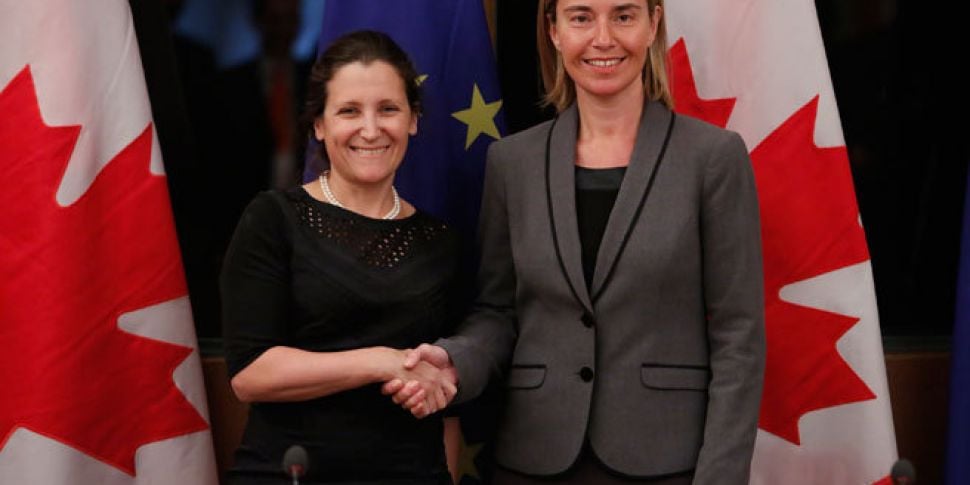A free-trade deal between Canada and the European Union may finally be signed next week, following emergency talks early on Saturday.
The President of the European Parliament, Martin Schulz, told reporters: "We are ready to sign on Thursday next week."
The prolonged, seven-year talks may have caused concern over the UK's ability to forge a trade deal with the EU following Brexit.
On Wednesday, Taoiseach Enda Kenny said the Comprehensive Economic and Trade Agreement (CETA) was of "immediate importance".
Irish exports to Canada are currently worth about €1.87bn annually and could increase substantially with the new trade deal.
"CETA will create opportunities for Irish companies through the opening up of public procurement markets in the Canadian provinces, providing unlimited tariff free access for most of our important food exports, and allowing the recognition of product standards and certification, thus saving on ‘double testing’ which is of particular importance to SME’s", Mr Kenny told the Dáil.
"Ireland was among a group of member states that successfully sought the designation of CETA as a mixed agreement. This means that national parliaments, including this House, will be involved in the ratification process.
"We also fully support the provisional application of CETA at the earliest opportunity."
At a news conference, Mr Schulz admitted the issues has been on this side of the Atlantic: "The problems on the table are European problems and we have to solve it.
"I'm very optimistic that we can solve the problems we have within the European Union."
He added that it had "perhaps" been a "decisive" meeting.
Canada's Trade Minister Chrystia Freeland said: "From Canada's perspective, our work is done.
"We have finished negotiating a very good agreement, and Canada is ready to sign this agreement."
Ms Freeland added: "Now the ball is in Europe's court, and it's time for Europe to finish doing its job. We very much hope that that will happen."
Stark contrast to Friday
Addressing the timetable, Ms Freeland told journalists: "I very much hope that I will be able to return here in just a few days, to Europe, with my Prime Minister, to sign this agreement on the 27th of October."
The new sense of optimism is in stark contrast to the situation on Friday, when Ms Freeland walked out of talks.
"It is now evident to me, evident to Canada," she said, "that the European Union is incapable of reaching an agreement - even with a country with European values such as Canada.
"Canada is disappointed and I personally am disappointed, but I think it's impossible," she said.
The sticking point has been a region in southern Belgium - Wallonia - which objected to the deal, despite all 28 national governments in the EU being in favour of CETA.
Those backing the deal say it could increase trade by 20%.
Belgium, however, needs agreement from its five sub-federal administrations, including Wallonia, which has a population of about 3.5 million people.
Concerns in the French-speaking region include rising pork and beef imports from Canada.
It was not clear on Saturday morning how progress had been made, but Mr Schulz said he would be speaking to Wallonia's Minister-President, Paul Magnette.
While the British Prime Minister, Theresa May, told reporters after her first EU summit this week that it was "important" the bloc concluded its deal with Canada.
Nevertheless, Mrs May said any potential UK deal with the EU would not be based on the Canadian model.









